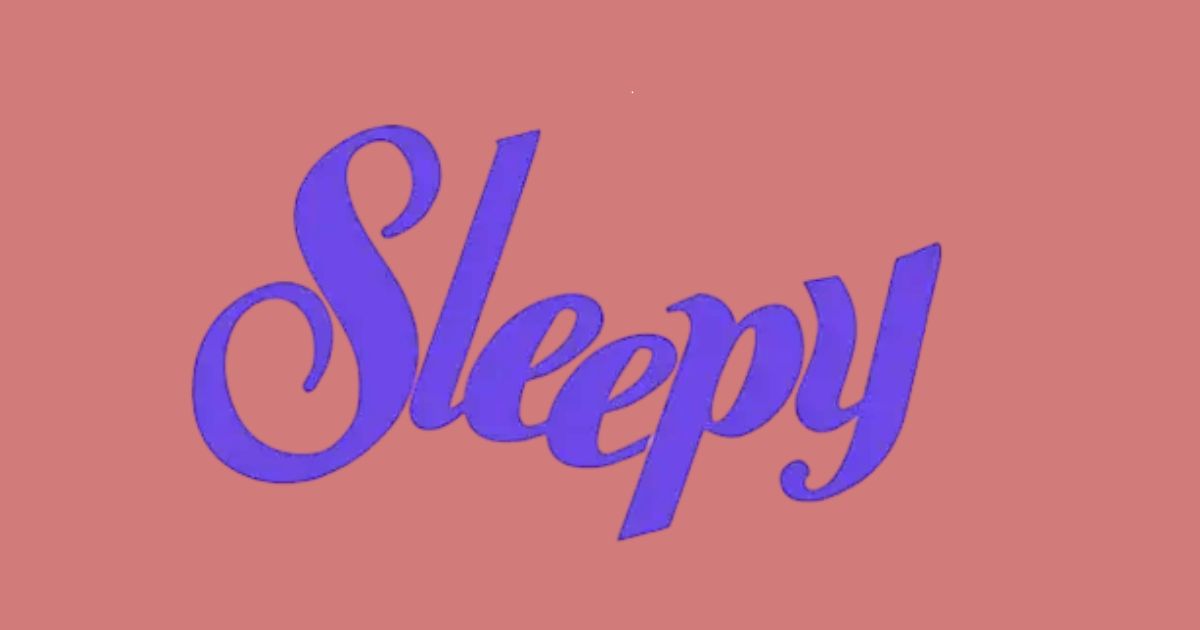I’m sleepy. My eyes are heavy, my thoughts are foggy, and I can’t stop yawning. Maybe it’s the late night, the never-ending meeting, or just too much scrolling on my phone. Sometimes, I’m sleepy for no clear reason, just drained, like my energy hit a wall. That wave of fatigue feels impossible to fight.
But instead of saying the same thing every time, there are dozens of ways to express it. “I’m nodding off,” “I’m running on empty,” or “I’m in desperate need of shut-eye.” These phrases pop up in casual chats, professional emails, or even creative stories. Whether it’s mental exhaustion, physical tiredness, or just needing your pillow now, the feeling is universal. When I’m sleepy, all I want is peace, restorative sleep, and the soft pull of slumber to finally take over.
Other Ways to Say “I’m Sleepy”

Sometimes, when the day drags on, you find yourself feeling drained and ready to crash. You might be barely keeping your eyes open or yearning for the Land of Nod. These phrases capture the feeling perfectly when you want to say, “I’m sleepy” without sounding repetitive.
Tiredness Terminals
Tiredness terminals refer to the physical and mental signs that signal your body is running low on energy. These include heavy eyelids, sluggish movements, and difficulty focusing. Recognizing these terminals helps you understand when it’s time to rest, recharge, and prioritize restorative sleep for better health and alertness.
1. Feeling Drowsy
Example: “After the long drive, I’m feeling drowsy and need to take a short break.”
Meaning: Experiencing a gentle yet persistent urge to fall asleep, often accompanied by reduced alertness and a relaxed state.
Usage: Perfect for casual conversations or professional settings when you want to express mild sleepiness without sounding urgent.
2. Barely Keeping My Eyes Open
Example: “It’s been a hectic day, and I’m barely keeping my eyes open during this meeting.”
Meaning: Struggling to stay awake, often due to extreme tiredness or sleep deprivation, where eyelids feel heavy and hard to hold open.
Usage: Informal phrase used to emphasize a strong need for rest, often to highlight exhaustion in a relatable way.
3. Yearning for the Land of Nod
Example: “After studying all night, I’m seriously yearning for the Land of Nod.”
Meaning: A poetic way to express a deep desire to fall asleep, referencing the mythical realm of dreams and rest.
Usage: Best used in casual or creative writing to add a whimsical or nostalgic tone about wanting to sleep.
4. Ready to Hit the Sack
Example: “It’s been a long day, and I’m ready to hit the sack.”
Meaning: Being prepared and eager to go to bed and sleep, often signaling complete tiredness and a need for restorative rest.
Usage: Common in casual conversation, friendly chats, or informal writing when expressing that it’s time for sleep.
Sleepiness Synonyms
Sleepiness comes in many forms, and there are plenty of words to describe that drowsy feeling. Terms like fatigue, exhaustion, weariness, and tiredness all capture different shades of needing rest. Using these synonyms helps express the struggle to stay alert and the deep desire for restorative sleep.
5. Drained and Ready to Crash
Example: “After working overtime all week, I’m completely drained and ready to crash.”
Meaning: Feeling utterly exhausted, both physically and mentally, and eager to fall asleep immediately.
Usage: Informal phrase perfect for casual conversations or storytelling to emphasize extreme tiredness and the urgent need for rest.
6. On the Brink of Slumber
Example: “I was on the brink of slumber when the phone rang and woke me up.”
Meaning: Being very close to falling asleep, in that transitional moment between wakefulness and sleep.
Usage: Suitable for both creative writing and casual conversation to describe the delicate moment just before dozing off.
7. In Desperate Need of Some Shut-eye
Example: “After pulling an all-nighter, I’m in desperate need of some shut-eye.”
Meaning: Having an urgent and overwhelming need for sleep, usually due to significant sleep deprivation.
Usage: Works well in informal settings or casual chats to stress the critical importance of getting rest soon.
8. Nodding Off
Example: “During the long lecture, I kept nodding off despite trying to stay awake.”
Meaning: Gradually falling asleep, often unintentionally and in a situation where staying awake is expected.
Usage: Commonly used in everyday conversation or storytelling to describe moments of unintended sleepiness.
Read More: 16 Other Ways to Say “I’m Hanging in There”
Fatigue Phrasings
Fatigue describes more than just feeling tired, it’s a heavy, persistent weariness that affects both body and mind. Phrases like “energy depletion,” “mental exhaustion,” and “physical tiredness” all paint a clear picture of fatigue. These expressions highlight how deeply drained someone can feel after long hours or intense activity.
9. Running on Empty
Example: “After days of little sleep, I’m running on empty and struggling to focus.”
Meaning: Feeling completely depleted of energy or mental stamina due to exhaustion or lack of rest.
Usage: Ideal for casual conversation and storytelling to express extreme fatigue or energy depletion.
10. Hitting the Hay
Example: “It’s late, and I’m ready to hit the hay after a long day.”
Meaning: Going to bed or preparing to sleep, often used in a casual or friendly context.
Usage: Common informal phrase suitable for casual conversation or lighthearted writing.
11. Counting Sheep
Example: “When I can’t fall asleep, I start counting sheep to relax my mind.”
Meaning: Using a mental exercise to help fall asleep by imagining sheep jumping over a fence.
Usage: Often used in storytelling or casual discussion about sleep difficulties or bedtime routines.
12. Longing for Pillow Time
Example: “After the exhausting trip, I was longing for pillow time all evening.”
Meaning: Eagerly anticipating the moment to rest and sleep, emphasizing the desire for comfort and relaxation.
Usage: Works well in both casual and creative writing to convey a heartfelt need for rest.
When to Use Different Expressions for Conveying Tiredness
Choosing the right way to say you’re tired depends on the situation. For casual chats, phrases like “ready to hit the sack” or “running on empty” work well. In professional emails, it’s better to use “feeling drained” or “experiencing fatigue” to sound respectful. Understanding context helps you communicate clearly and empathetically.
In Casual Conversations
In everyday chats with friends or family, you can keep it light and relatable. Sayings like “I’m sleepy,” “counting sheep,” or “barely keeping my eyes open” add a playful tone. These expressions reflect physical tiredness or sleepiness without sounding too serious, making your exhaustion sound natural and easy to understand.
During Professional or Formal Interactions
In work emails or formal discussions, opt for polished phrasing like “I’m experiencing fatigue,” “I’m a bit drained,” or “feeling mentally exhausted.” These expressions convey tiredness respectfully while maintaining professionalism. Avoid overly casual language, clarity and tone matter when discussing energy depletion or the need for restorative rest in a professional setting.
In Creative Writing or Storytelling
Creative writing thrives on vivid imagery and emotion. Instead of plainly saying “I’m sleepy,” use phrases like “on the brink of slumber,” “longing for pillow time,” or “yearning for the Land of Nod.” These expressions evoke mood and setting, helping readers feel the weariness, restlessness, or gentle pull of sleep.
When Seeking Empathy or Understanding
When you want someone to relate to your exhaustion, use heartfelt phrases like “in desperate need of shut-eye” or “running on empty.” These expressions go beyond just saying “I’m sleepy” by adding emotional depth, helping others grasp your physical tiredness or mental exhaustion and respond with compassion or support.
Conclusion
I’m sleepy is something we all feel. After a long day or a short night, I’m sleepy just takes over. It’s not always just tiredness. Sometimes, it’s full-on fatigue or mental exhaustion. You might be running on empty or just yearning for the Land of Nod. When I’m sleepy, I need rest, not just bedtime. I need real, restorative sleep.
When I’m sleepy, even the smallest task feels big. My body needs to recharge. My mind needs quiet. Saying I’m sleepy can mean many things. It might mean I’m drained, I’m hitting the hay, or even I’m counting sheep. Whether it’s physical tiredness or lack of sleep, your words can show it. Choose the right ones for texts, talks, or writing. Because when I’m sleepy, what I say matters, and what I really need is a good pillow and some peace.

Grammerroot is your trusted source for mastering English grammar and language skills. From simple rules to advanced tips, we help learners build strong foundations through easy-to-understand content. Learn smart, learn right — only at Grammer Root.




